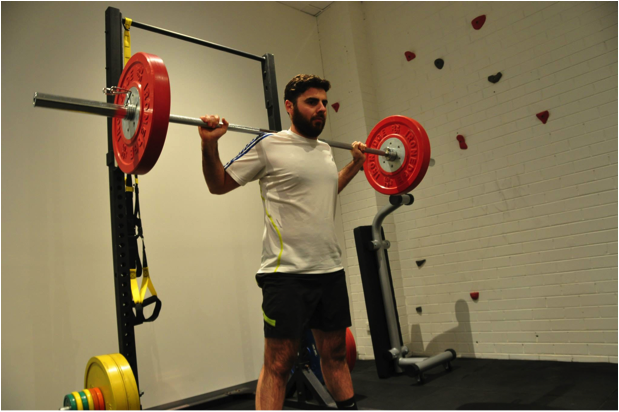Running is a fantastic form of exercise that has been shown to have multiple health benefits. It allows you to keep fit and strong, get outside and get some fresh air, de-stress and just makes you generally feel good. Whether you’re running recreationally or training and competing at a high level, these 7 tips we have put together will help to improve your running.
1. Strength Train
Strength training has been shown over and over again to improve running performance. It helps to improve strength, neuromuscular control (reference) and running economy (reference) It may also indirectly reduce your risk of injury.
My recommendation for runners is to complete a 30-60 minute weight session at least twice a week, performing predominately compound, multi-joint exercises such as squats and dead lifts. For experienced lifters you will want to shoot for about 3-6 sets of 3-5 repetitions at approximately your 10 Repetition Maximum (RM). For novice lifters, try for 8-10 repetitions at 15-20 of your RM.
The research is divided on when it is best to perform your weight sessions. I would say let time be your determining factor: if you can leave 6 or more our between your runs and your weight sessions that’s great, but if you are limited for time, weight training immediately after your runs is fine.
2. Every session should have a purpose
The old running saying goes ‘many runners’ fast sessions are too slow, and their slow sessions are too fast.’ There is no problem if you are training for general fitness by feel, but if you are training at a high level or to improve your performance, each session should have a Welcome distinct purpose and goal.
Your easy sessions should be exactly that – easy. Your fast, tempo, interval and fartlek sessions should all be pre-planned with sets, repetitions, distance and times in mind. If you stick to these numbers your sessions should flow much better and you should see the performance benefits in time.
3. Listen to your body
Your body is an extremely strong, complex and smart organism, so you should really listen to the signals it gives you. If you are pulling up sore from sessions, struggling to hit your planned numbers or just plain finding it difficult to get out of bed in the morning, your body is probably telling you it is time for a break. Don’t be scared to miss a session every now and again. Train smart first, then hard, and you will see the benefits in your running.
4. Vary your terrain and sessions
Are you pounding the same section of pavement week in, week out? If you are, change it up, choose a different path, throw in some hills or hit the trails. The variation in your running will improve your adaptation to running and also potentially decrease the risk of injury, not to mention helping motivation. But make sure you make these changes in moderation!
5. Seek help if needed
If you are pulling up sore from your sessions, can’t run due to pain or unsure about technique or your training load, be sure to seek help from a qualified therapist or coach. They should be able to take the time to understand what your concerns are and formulate a plan to achieve your individual goals.
6. Recover Well
Recovery across all sports is key, and running is no exception. Proper sleep is arguably the best recovery method. Sleeping is your body’s time to repair itself. Research has shown that athletes who consistently sleep less than 8 hours per night increase their risk of injury by 70 per cent (reference). Respect your need for Treatment sleep and your body will thank you.
7. Fuel Properly
The definition of what proper fueling actually is has become a controversial topic in recent times, with the emergence of the low-carb, high-fat paradigm. Going into depth on this issue is out of the scope of this blog post, but nevertheless proper fueling is crucial for improved running performance and recovery.
If your are training first thing in the morning, provided you have eaten enough the day before, there is probably no need to eat beforehand. However, if your session is longer than 60-90 minutes, you may want to take some food along on your run. If you are training during the day, make sure you have had a good size meal, but nothing too heavy around 2-6 hours before. Again, it will depend on the length of your session if you need to take food along with you.
After running, especially long runs is it important to replenish your energy levels through a mix of good fats, proteins and carbohydrates within 40-60 minutes of your run.
Thanks for reading,
Nick
Dr. Nicholas Tripodi is a Co-director and Osteopath at the Competitive Sports Clinic in the Essendon District. Nicholas has particular interests in sports injuries, exercise rehabilitation and running and cycling analysis.





